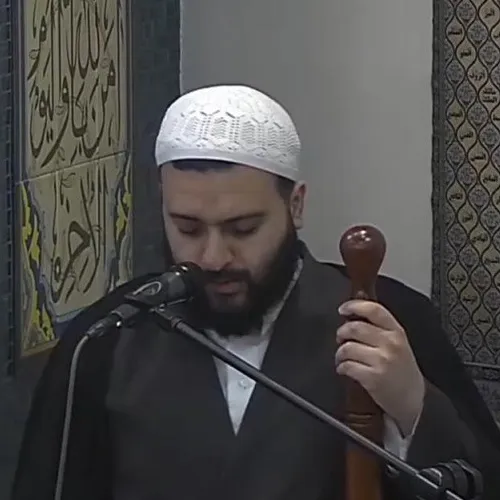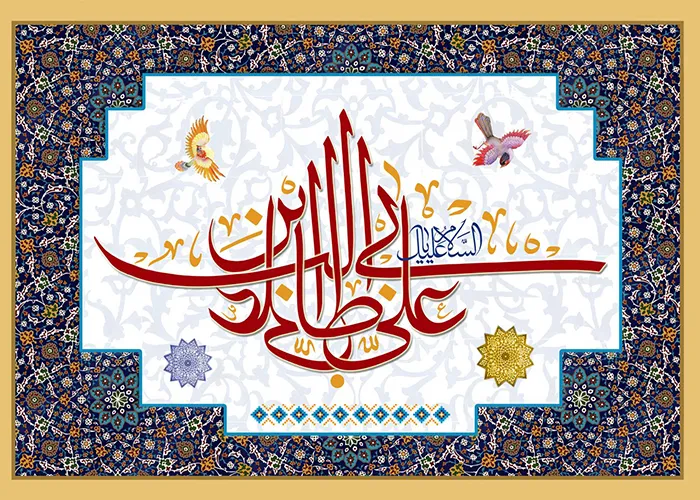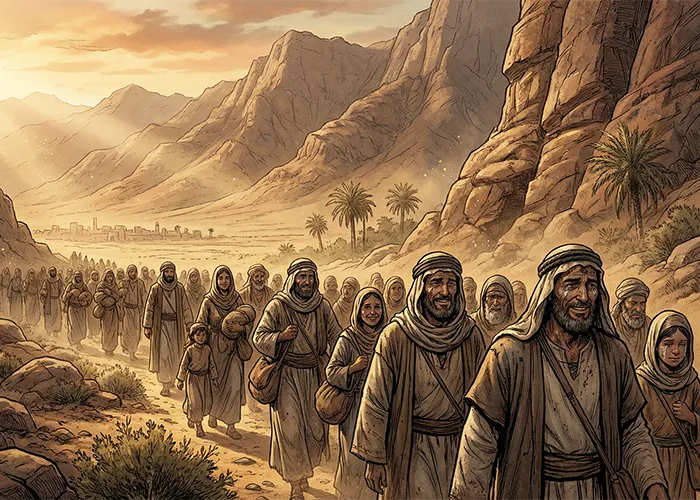Sheikh Ali Hadi Shabbiri
On the occasion of the birth of Prophet Jesus (PBUH), we also asked this week’s guest in the Friday Bulletin, in addition to other questions, what evidence exists to support the claim that the Qur’an and Islam show greater respect to Prophet Jesus than other religions. Sheikh Ali Hadi Shabbiri, the Friday Imam of Al Zahra Institute in Watford, on the outskirts of London, in this interview, also attributed his inclination toward the clergy to his family upbringing and his inner devotion to the Ahl al-Bayt (peace be upon them). He made an effort to answer our questions based on his personal experience and his knowledge.
1. Could you first tell us about your background and the Friday Prayer you lead?
I was born and raised in the United Kingdom, where I completed my primary education. During my formative years. My family relocated to the United States after my father assumed the position of Resident Aalim at the Islamic Education Centre (IEC) in Houston, Texas. Growing up under his guidance and benefiting from his wisdom, I was further inspired to pursue religious education. With the blessings and prayers of Hujjatul Islam Nasser Biria, I began my journey at the Hawza Ilmiyyah in the holy city of Qom in 2014.
After dedicating six years to Islamic studies in Qom, I returned to the United Kingdom amidst the unprecedented challenges of the COVID-19 pandemic. Currently, I serve as the Friday Prayer Leader at Al Zahra Centre in Watford, doing whatever I can within my capacity to improve the community’s spiritual and intellectual growth.
2. Your father, uncle, and cousin are all Friday Prayer leaders in the UK. What is the reason for this strong inclination toward the clergy in your family? Is it hereditary, or was there another motivation?
The motivation displayed by the youth in our family is undoubtedly a blessing from Allah (SWT). To an outside observer, it may appear that our inclination towards the field of Rouhaniyat stems naturally from being the sons and relatives of individuals who have dedicated their lives to this noble cause. While this familial influence has undoubtedly played a significant role, particularly through the unwavering efforts of my father and family in nurturing us, my personal journey towards the Hawza was distinctly my own.
This journey was profoundly shaped by the transformative experience of the Arbaeen Ziyarah of Aba Abdillah (AS), which served as a revolutionary turning point in my life. It was through this life-changing pilgrimage that I chose this path as my inheritance and life’s mission. If I was given the chance to live another life, I would, without hesitation, embrace this path once again, never letting it go.
3. As a young Imam, what do you see as the main problems facing Muslim youth in Western countries today?
The challenges faced by Western youth are numerous, and the societal framework in which they live often serves as a direct obstacle to their personal and spiritual growth. These challenges have a profound impact on their level of commitment to their religion. This vast and critical subject requires the attention of scholars and the establishment of think tanks and research initiatives to better understand and address these issues.
In my view, the youth of today are deeply in search of truth and grappling with questions of identity and faith. When religion is merely inherited from parents, it often results in adherence to the bare minimum. However, when individuals are equipped with a philosophical and logical understanding of their faith, they naturally develop a deeper commitment and connection to it.
To summarize, I believe our youth seek a firm and profound grasp of their beliefs and reject blind adherence. They observe global events and aspire to make insightful analyses. They yearn to be leaders within their communities and possess immense energy and potential. Unfortunately, they often struggle to channel this energy toward their faith effectively. One significant reason for this struggle is the lack of meaningful connection with their centres and religious scholars. Strengthening these ties is essential for empowering and guiding the youth to realize their full potential.
4. What factors contribute to the lack of attention from believers and young people to mosques and religious centres?
In many instances, mosques and Islamic centres lack programme diversity, often resembling care homes for the elderly rather than vibrant hubs for energetic youth. In my view, engaging young people requires more than simply being of a similar age—it demands an understanding of their realities and the challenges they face in Western society. Many youths feel disconnected because elders in the community are reluctant to relinquish control, creating a significant generational divide.
The third generation is increasingly distanced from the first, emphasising the urgent need for young scholars and leaders to bridge this gap. If the youth are disengaged from a centre, it is often because it primarily caters to the older generation. By empowering young people and offering them opportunities to lead, mosques and centres can flourish and become more inclusive and dynamic spaces.
5. One of the issues in mosques and religious centres concerning converts is the “welcome and neglect” problem — they are warmly welcomed at first, but then left to their own devices. What is your opinion on this, and what is the solution?
Retaining converts within a community is a complex and challenging task. Being new to the faith, they often face a constant stream of questions and uncertainties regarding their recent beliefs. Unfortunately, the lack of meaningful relationships with these individuals frequently results in some converts leaving the fold, either adopting a different sect or even embracing another religion altogether. This disconnect often stems from insufficient engagement with community leaders and members.
In my humble opinion, the solution lies in fostering strong, genuine relationships with converts, aiming to address their lingering doubts and solidify their newfound faith. A convert is akin to a newborn who requires special attention, care, and nurturing. However, not every community leader or scholar possesses the ability or readiness to serve as a paternal figure to the community, which underscores the need for greater effort and empathy in this regard.
6. Based on research and official sources, the Quran shows more respect for Prophet Jesus (PBUH) than the Bible. Could you provide documented evidence and explain this in detail?
The Prophet of God, Isa (PBUH) is a revered and honourable prophet within the religion of Islam, and is regarded as one of the five most exalted Prophets in the universe, the Quran honours Prophet Isa (PBUH) in a way that no other religion reveres him, Lady Mary (PBUH) in the Quran is hailed as one of the most exalted ladies to have been created by Allah (SWT) and there is a whole chapter dedicated to her in comparison to the bible, Prophet Isa (PBUH) is regarded as an example for humanity and also one who will return with Imam Mahdi (AJTFS) to reestablish justice in the world, therefore the respect of Islam towards Prophet Isa (PBUH) is unparalleled in portraying him as a revered prophet sent to guide humanity. It emphasises his miraculous birth, his many miracles through Allah’s will, and his role as a servant of God. Mary (Maryam, PBUH) is also honoured with unmatched reverence, with a chapter dedicated to her. Unlike the Bible, the Qur’an denies Jesus’ crucifixion, stating that he was raised to Allah, preserving his dignity. Muslims believe the Qur’an provides the most accurate and respectful portrayal of Jesus (PBUH), free from theological alterations.
news via inbox
Subscribe to the newsletter.




